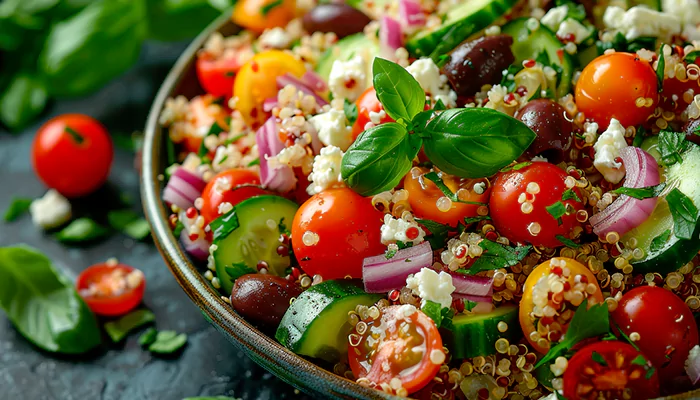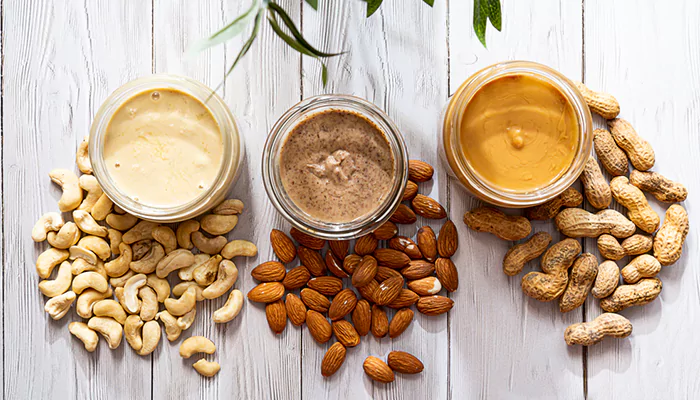What are the best food for bulking ?
The key is to eat more of these healthy food to build muscle
- Sanjukta
- 09 June, 2025
- 2 mins ago

What are the best food for bulking ?
The key is to eat more of these healthy food to build muscle
Bulking is a phase in fitness where the goal is to build muscle by consuming more calories than your body burns. This extra caloric intake, combined with strength training, helps you gain muscle mass. However, bulking isn't about eating everything in sight—it's about consuming the right foods that promote lean muscle growth, not just fat gain.
Bulking vs. Cutting: What’s the Difference?
When people bulk, they focus on gaining weight through muscle mass by eating a calorie surplus. In contrast, cutting is when they eat fewer calories than they burn to lose fat but maintain the muscle gained during the bulking phase. Both phases are often part of a long-term fitness strategy to achieve a lean, muscular physique. The goal is to strike a balance—build muscle without gaining excessive fat and then cut down on fat while keeping muscle.
The Role of Calories in Bulking

Calories are key in bulking. To gain muscle, you need to be in a caloric surplus, meaning you should eat more than your body needs to maintain its current weight. Typically, people aiming for a bulk will consume around 250-500 calories more per day than their maintenance calories. The idea is to fuel your body with enough energy for intense workouts and muscle repair, but not so much that you gain excess fat.
But it’s not just about eating more—you also need the right balance of macronutrients (proteins, fats, and carbs) to support muscle growth and recovery.
Best Foods for Bulking
Now, let’s get to the good stuff—what should you be eating while bulking? The focus should be on nutrient-dense foods that provide quality calories, healthy fats, and enough protein to support muscle repair. Here are some top options:
Lean Meat
Lean meats are protein powerhouses, essential for building muscle. They provide high-quality protein that helps repair muscle fibers torn during workouts. Plus, they’re low in fat, which keeps your calorie intake from going too high.
Rice and Quinoa
Both rice and quinoa are excellent sources of carbohydrates, which provide the energy needed for your workouts. Carbs fuel your body, allowing you to lift heavier and recover faster. Quinoa is especially great because it’s also packed with protein and fiber.
Oats
Oats are a perfect breakfast choice for bulking. They're rich in complex carbs, providing slow-releasing energy throughout the day. Oats also contain fiber and important micronutrients like magnesium, which supports muscle function.
Nuts and Nut Butters

Almonds, walnuts, and peanut butter are calorie-dense foods loaded with healthy fats, making them ideal for bulking. They provide a quick and easy way to increase your calorie intake while offering heart-healthy fats and some protein. Just be cautious with portions—nuts pack a lot of calories into small servings.
Sweet potatoes
Sweet potatoes are a fantastic carbohydrate source, rich in vitamins, fiber, and antioxidants. They provide slow-burning energy, which helps keep you fueled for longer training sessions and aids in recovery.
Salmon and fatty fish
Fatty fish like salmon provide healthy omega-3 fatty acids, which are great for heart health and inflammation reduction. They’re also a good source of protein, making them a great food to include during your bulk.
Full-fat dairy
Milk, cheese, and yogurt can be useful during a bulk as they provide a mix of proteins and fats. Greek yogurt, in particular, is a high-protein option that also gives you a good amount of calcium, important for bone health.
Avocados

Avocados are rich in healthy fats and fiber, helping you increase your calorie intake without sacrificing nutrition. They’re also packed with vitamins and minerals, making them an ideal choice for bulking meals.
Beans and lentils
If you're looking for plant-based protein, beans and lentils are the way to go. They’re rich in protein, fiber, and essential minerals like iron and magnesium. Plus, they’re versatile and can be added to salads, soups, or stir-fries.










